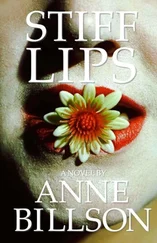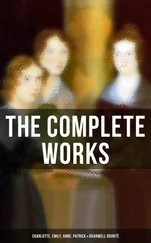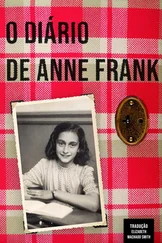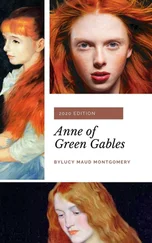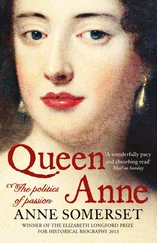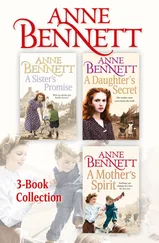I found a part-time job in a West End shoe store. Every evening at closing time the manager would search his employees' bags to make sure we weren't walking off with items of stock, though the shoes were so awful (patent plastic, buckles, platform soles) no one in their right mind would have wanted to steal them. Besides, the store practised its own type of aversion therapy. We assistants had to wear turquoise nylon smocks; the carpet was nylon too, and the display units were metal, and every time we touched a shoe, it would give us a small, sharp electric shock.
On days when I wasn't trying to squeeze misshapen feet into plastic shoes, I was busy doing all the things my mother had never let me do at home — like staying up half the night, or staying in bed till noon. I assembled intricate collages out of pictures cut from magazines. Other than a weekly trip to the cinema, I didn't go out much. I played records at maximum volume, until the student in the next room tapped timidly on my door and asked if I could turn it down because she was trying to sleep. Sometimes I laid traps for the mice which would come out to play every night, squeaking excitedly as they abseiled down the back of the wardrobe on my loudspeaker wires.
It wasn't long before the shoe shop and I parted company. One day I got into a scrap with another assistant — an Argentinian girl who called me a 'beach' when I innocently directed the manager's attention to the bulge in her sweater. It turned out to be a packet of tights she was smuggling out on her lunch break. She swore at me in Spanish and ripped out a handful of my hair, so I punched her in the stomach. Customers looked on in amazement as we rolled around the floor, biting and scratching and crackling with static. It wasn't my fault, but the manager sacked us both on the spot. I was so outraged I rang up Lunar House in Croydon with a visa enquiry, and ten days later my Argentinian friend was shipped back to Buenos Aires.
My next job was in a Soho patisserie. Here, the staff were positively encouraged to help themselves to any merchandise left unsold at the end of the working day. Other assistants would gratefully tuck a Chelsea bun or two into their shopping-bags when they went home. I took this policy a step further by consuming what I wanted, when I wanted it: doughnuts, Danish pastries, eclairs, almond slices, strawberry tartlets. No one objected. I didn't get fat, exactly, but I got sort of plump.
But I had no intention of spending the rest of my life flogging croissants and custard tarts. I needed to broaden my horizons. I wanted an education in the University of Life. Before long, I'd built up quite a collection of scribblings and collages, so I shuffled them into some sort of order and managed to bluff my way on to a three-year diploma course in Fine Art.
I started making friends, but slowly. For a while, I floated along in my own little world, dropping into class whenever the fancy took me, but mostly skiving off and wandering through the back streets, eating sticky buns and peeking through windows, watching the people inside, wondering how much money they had, and what sort of lives they were leading. But as soon as I set my sights on Duncan Fender, my life snapped into focus. I started putting in long hours over my easel, attended as many tutorials as I could. At first I didn't run into him very often, but it didn't take me long to realize this was because he spent most of his time down in the darkroom. I began to spend time down there, too.
I knew I wanted him as soon as I laid eyes on the photographs which came peeling off the dryer. He'd been taking pictures of cemeteries: Highgate, Kensal Rise, Norwood, Brompton, Nunhead, Abney Park. All sarcophagi and skeletal trees, ruined chapels and crumbling stone angels. He spent a lot of time and effort printing up those negatives, burning in the sky so it glowered, dodging in all the shadowy details. Sometimes there would be figures flitting through trees in the background, but mostly it was nature in a state of shock, petrified and overgrown. One could tell he was deeply sensitive just by looking at his work.
I had to borrow a camera. I was one of the few students who didn't have a Pentax or a Nikon of their own. Sometimes it felt as though the college was being turned into an alternative finishing school for people on private incomes. By a cruel twist of fate, some of the wealthier students received full grants from local authorities befuddled by their parents' estrangements and remarriages and complicated custody arrangements. The extra cash came in useful for throwing parties, or buying clothes, or nipping over to Paris at weekends, while I was plugging up the holes in my own allowance by working Saturdays at the cake shop.
In my year, we had Susannah Stukeleigh of the Stukeleigh sales rooms, and Jane Appleby, whose father owned a string of racehorses, and Nancy Manners, whose coat of arms was familiar from a certain well-known brand of tea, and Ruth Weinstein, whose father was rumoured to be some sort of arms dealer. I insulted these rich girls to their faces, but they were always nice to me, because they found me colourful — except for my clothes, which were black. I wore black all the time back then, though in those days it required some effort to find black items — not like ten years later, when all the shops would be stocked to the hilt with fifty-seven varieties of little black frock. Back in the seventies, all-black attire was considered suitable only for widows and New Zealand rugby-players.
Susannah and Jane and Nancy and Ruth adored Duncan, because he had charm and he knew how to use it. They were flattered when he wanted to take pictures of them looking ethereal in graveyards. And they were fascinated by his background, because he came from genuine bohemian stock. His real name wasn't Duncan; it was something fancy like Donecan, or Duncannon, but he'd changed it because he was fed up with it being misspelled. Duncan's great-uncle had hung around with Kurt Schwitters, the Dadaist, and Duncan's father had also been a famous painter — though not so famous that any of us had heard of him. Even better, there was a rumour that his parents had once been involved in a menage a trois which had scandalized tout Paris . Duncan didn't talk about his family at all, but his reticence made the little that leaked out all the more tantalizing. Politely but firmly he discouraged all attempts at intimacy, and concentrated instead on his art. He worked hard, he always worked so hard, battering away at his personal muse, turning out beautifully photographed cemeteries by the score.
My own muse wasn't quite so complicated. It came in fits and starts — mostly waiting in the wings until I felt the need for attention. Then it would take centre stage and dance the fandango. One time, for instance, I added pieces of broken razor-blade to my latest collage. It was hailed as an artistic triumph, especially when one of the tutors slashed his finger and had to be rushed to hospital. Another time, I constructed a landscape out of calves' liver. Before the day was out it was swarming with flies and there were complaints about the smell, but still it was acclaimed as another tour de force . No one ever thought to ask how I was going to make a living out of artistic arrangements of offal and razor-blades. The tutors believed in Fine Art as a pure concept unsullied by commercial opportunism. They didn't care what happened to us in the world outside.
But the art served its purpose. No one could ignore it, not even Duncan. He took the bait — though hooking him was one thing, reeling him in was another. It became the central obsession of my life. He was the last thought I had before going to sleep, he was present in my dreams, and he was there in my head as soon as I woke up. And in the studio one evening, as I was packing up to go home, he came up to me and asked me out. Afterwards, I danced home in triumph. This was what I'd been waiting for. This was all the proof I needed — I was not an ordinary person, I possessed the power, and Duncan belonged to me.
Читать дальше

